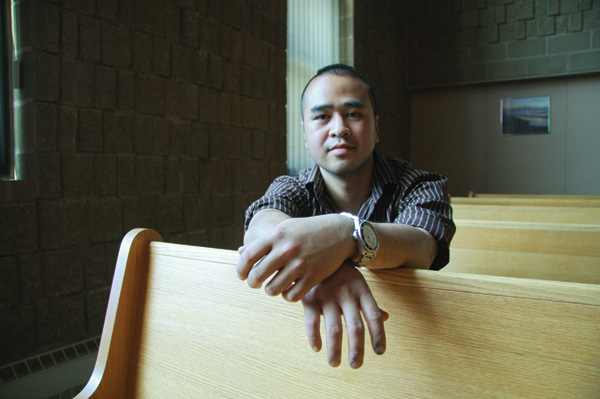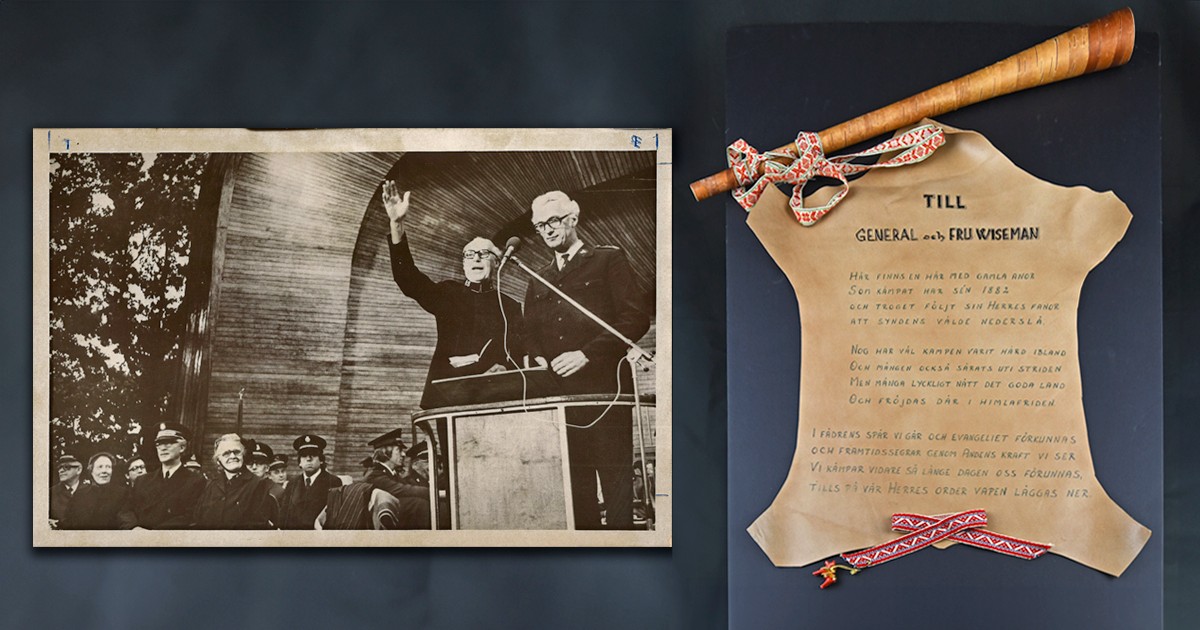 When you are deep into drugs, the lifestyle blinds you,” says Vir. “I had no self-respect and was in a pit of despair. Now, thanks to The Salvation Army, I have a sober mind, a new-found hope and realize there was nothing good about living that way.”
When you are deep into drugs, the lifestyle blinds you,” says Vir. “I had no self-respect and was in a pit of despair. Now, thanks to The Salvation Army, I have a sober mind, a new-found hope and realize there was nothing good about living that way.”
Virasak Thongpheng (known as Vir) was shy, polite and ambitious when he moved to Winnipeg in 2000 to attend the University of Manitoba. Majoring in English, his goal was to teach in Thailand, his country of origin. Life was good. Then, his parents separated.
Confused and sad, Vir abused alcohol. As a result, his grades suffered and he dropped out of university. He became employed in the restaurant industry as a bartender and, soon after, co-workers invited him to experiment with cocaine. “I felt cool, confident and part of the crowd,” says Vir. “But I was naïve to the drug's deadly effects.”
For seven years Vir was unable to hold a steady job. Homeless, he surfed from one friend's couch to another. “I was in a dark world,” says Vir. “I craved the drug and could only think about my next hit.” Desperation drove Vir to purchase cocaine at any cost. His life was a tangled mess of crime and dependency.
In the summer of 2009, as caretaker of an apartment building, Vir used a tenant's rent to buy cocaine. “I was embarrassed and ashamed,” says Vir. “I never returned to the job or my apartment.” Penniless and with only the clothes on his back, Vir slept curled up on the dingy steps of a stairwell in a back alley.
Weeks later, Vir arrived at his mom's home, high on cocaine, begging for money. “I hadn't slept for seven days and was exhausted,” he recalls. “My pupils were huge and glassy and I looked like a walking skeleton.”
Vir's siblings, nieces and nephews, visiting from out of town, wept when they saw him. “I put my family through severe emotional stress,” says Vir. “Each one was a victim of my lying, cheating, stealing and manipulation.”
Following the emotional encounter with his family, Vir became serious about recovery. After nine days in detox he entered The Salvation Army Booth Centre Anchorage program in Winnipeg, a 60-day residential treatment program for men and women with drug and alcohol addictions.
“Anchorage got my attention and was the cornerstone of my recovery,” says Vir. “It taught me how to manage my life again, be responsible, think of others and successfully ease back into society.”
Vir has been clean since July 2009. Family relationships have been rekindled and he manages a local café. At Anchorage, the daily chapel service motivated him to pick up his guitar again and he now participates in worship services and various Salvation Army events.
“Every opportunity, I give back,” says Vir. “I was once hopeless. Now, I embrace life with courage and dignity.”
For most people, living without dignity is a remote concept. The Salvation Army has developed The Dignity Project to inspire and educate the public about the challenges facing society's most vulnerable people—and what they can do to help.
People's lives change when they are treated with dignity. Visit SalvationArmy.ca/dignityproject and join The Dignity Project.











Leave a Comment